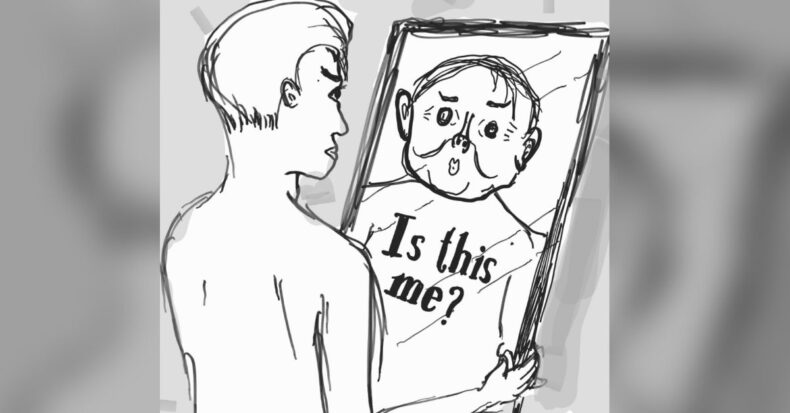Overview
Body Dysmorphia or self-obsession with one’s own body is a lesser-known issue that significantly affects the present youth.
Dr Mayurnath Reddy, a consultant psychiatrist from Yashoda Hospitals Hyderabad, elaborates that approximately one million cases arise annually in India.(Dysmorphia)
He also iterates that this has a profound impact on the psyche of individuals and can decrement productivity whilst promulgating low-self esteem and, in extreme cases, even depression.
A worrisome trend has been observed that the cases are rising exponentially each year and that we’re still equipped with so little knowledge to curb it.
Dr Samir Parikh, director of Mental Health & Behavioural Sciences at Fortis Healthcare, believes that a person afflicted with BDD (Body Dysmorphia Disorder) may perceive himself/herself as imperfect, invalid or having hideous features, which otherwise they wouldn’t elicit the same response when they ask somebody else about how he/she looks.
For instance, a boy might start thinking of the complexion of his skin and that he wants to get fairer than he is at present.(Dysmorphia)
Or a girl might wonder whether her acne and dimples are ruining her image. This is what essentially constitutes body dysmorphia — a desire for a flawless body without any blemishes.
People who have BDD can obsess over how they look for hours, and they seek validation, constant motivation and assurances of their appearances. Dr Parikh adds that they tend to itch, rub at any defects they might have, and compare themselves with others.
The consequence often leads to unhealthy and uneasy anxiety, insomnia. It can make the individuals distraught, affecting socialization, which, in turn, can make the state of their mental health even worse.
It can lead to poor academic performance, trouble focusing while trying to do some work, distraction, and even suicidal tendencies.(Dysmorphia)
Causes
Although like many other mental disorders, the causes are not well-defined, most of them arise due to biopsychological factors engendered from developmental, social, psychological or cultural problems.
Much of the documented cases involve adolescents on the verge of puberty, who get easily influenced and also come under the gambit of peer pressure of perfectionism and idealism.
Among the most notable and notorious reasons is the excessive usage of social media platforms, particularly those which indulge users through photographs like Instagram and Snapchat.
Selfie-taking using filters create a wrong and false perception and standards of beauty, which is then internalized by the BDD patients who strive to adopt these standards as their own.
These days, youngsters are very much preoccupied with clicking the “ideal photograph” to post on social media and spending hours either endeavouring to get the apt pose or visage.(Dysmorphia)
This has become a very common issue, particularly with female mental health.
The social media features of likes and comments further exacerbate this symptom by introducing the essence of self-verification and validation to redeem oneself.
A study conducted by the Istanbul Bilgi University and Bogazici University in Turkey concluded that people with low self-esteem tend to indulge in selfie-taking to prove themselves and improve their interpersonal interaction.(Dysmorphia)
Some individuals start thinking of getting plastic surgery in the form of nose jobs, hair transplantation etc., to improve their appearance.
Even a celebrity actress Illeana D’Cruz admitted to having suffered from body dysmorphia in a recent interview, wherein she said that “no matter your body shape or size, you’ll always find fault with yourself and you turn to people to validate your fears.”(Dysmorphia)
Treatment
Two widely adopted methodologies to counter this malady comprise serotonin reuptake inhibitors (SRI) and cognitive-behavioural therapy (CBT).
SSRIs are a group of antidepressants that can increase the levels of serotonin in the brain. Serotonin is a key hormone for emotional well-being and happiness and can subdue obsessive and compulsive tendencies created by BDD.
Cognitive behavioural therapy is a form of a psychosocial intervention seeking to ameliorate deteriorating mental health by changing an individual’s cognitive attributes like attitude, thoughts, and beliefs.
Several guided sessions may help patients overcome faulty thought patterns and cleanse their mindset.
Another very impactful method is promoting body positivity — being proud of your own body, which is frequently practised by many influencers on social media, who have a great reach.
Similarly, media and digital literacy can change the way people express themselves, boosting this positivity, Dr Parikh concludes.













